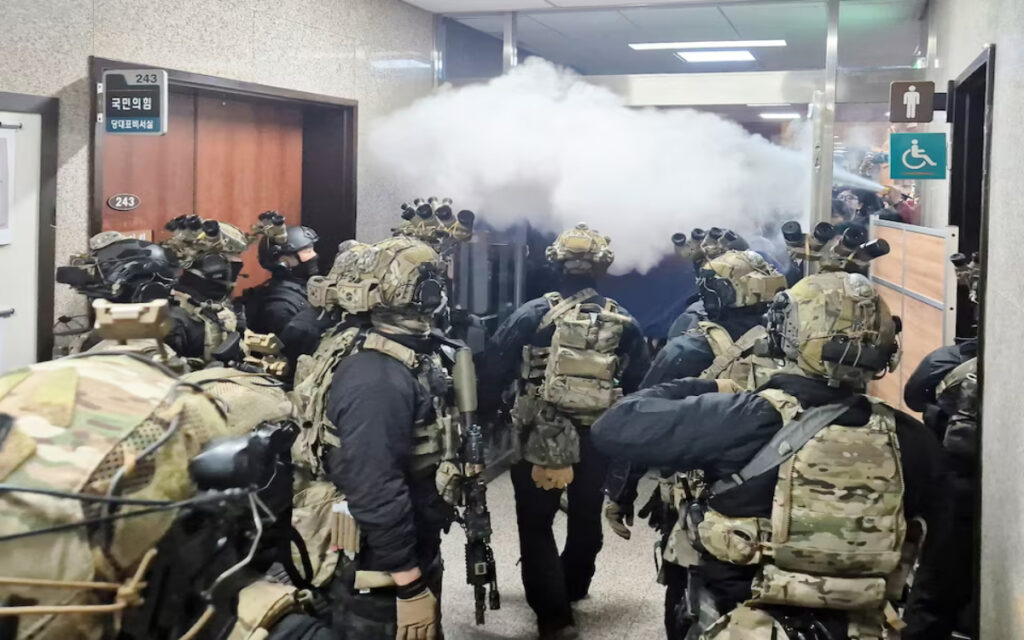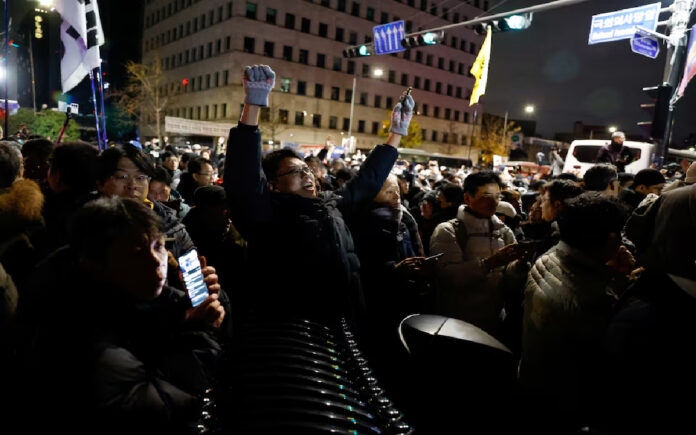Seoul: In a shocking political move, South Korean President Yoon Suk Yeol declared martial law late Tuesday, sparking widespread outrage and swift action by lawmakers to reject the measure. The announcement, which Yoon framed as a necessary step to protect the country’s constitutional order, was met with fierce opposition across the political spectrum, including members of his own party.
Parliament Speaker Kim Jin-pyo invalidated the declaration, and legislators convened early Wednesday to formally reject the unprecedented move. Critics labeled the declaration as the gravest threat to South Korea’s democracy since the 1980s.
Chaotic Scenes at Parliament
In dramatic scenes broadcast live, helmeted troops reportedly assigned to enforce martial law attempted to enter the National Assembly. Parliamentary staff pushed back the soldiers, using fire extinguishers to block their advance. Meanwhile, protests erupted outside the assembly, with demonstrators chanting slogans like “Withdraw emergency martial law!” and “Arrest Yoon Suk Yeol!”

Yoon defended his actions during a live address, accusing opposition parties of holding the parliamentary process hostage. He vowed to eliminate what he called “shameless pro-North Korean anti-state forces.” However, his failure to cite a specific external threat, such as North Korea, intensified criticism that the move was politically motivated.
Economic and Political Fallout
The declaration rattled financial markets, with the Korean won sharply dropping against the U.S. dollar. South Korea’s Finance Minister Choi Sang-mok convened an emergency economic meeting to stabilize the situation. The Bank of Korea also prepared measures to counter market volatility.
Also Read | Guinea Stadium Tragedy: 56 Dead After Soccer Match Violence
Former President Moon Jae-in of the Democratic Party condemned Yoon’s actions, calling the situation a “crisis for democracy.” He urged the public to rally behind the National Assembly to uphold democratic values.
International Concerns
The White House confirmed it was closely monitoring the unfolding situation in South Korea, where approximately 28,500 U.S. troops are stationed. While the U.S. military command in South Korea declined to comment, the potential implications for the region’s stability have drawn global attention.
Also Read | Unmanned Ground Vehicles: Ukraine’s High-Tech Solution for Frontline Support
This marks the first martial law declaration in South Korea since 1980, raising fears of a regression to authoritarian practices in a nation long celebrated for its democratic progress.



